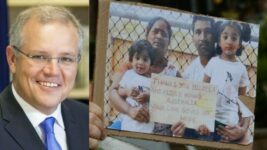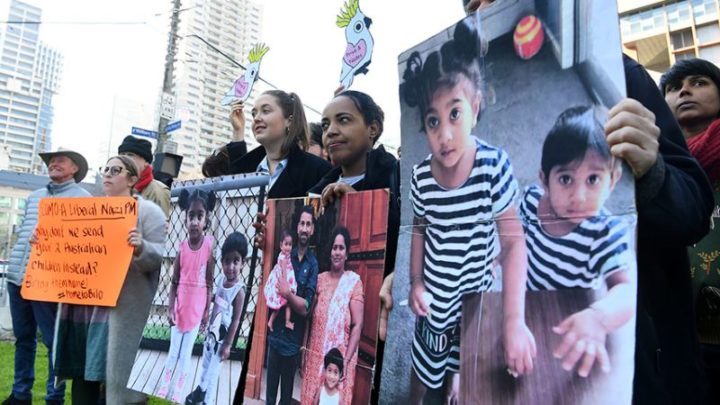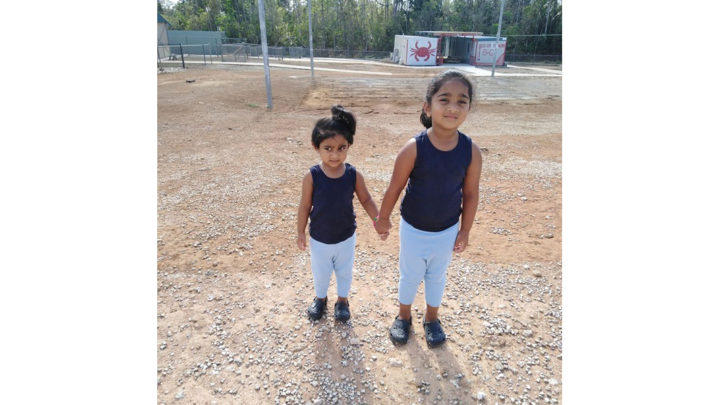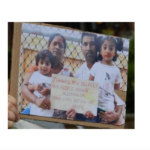Biloela Family Wins Small Victory, But Continues to be Detained and Face Deportation

Today has resulted in a big step forward for Tamil asylum seekers the Murugappan family, in its bid to call Biloela home permanently.
The Federal Circuit Court has ruled that the decision by Immigration Minister Alex Hawke’s in June 2021 to prevent three members of the family from applying for further bridging visas was procedurally unfair.
It’s a victory, of sorts.
According to the family’s lawyers, the court based its decision on two factors:
- that a submission given to the department had not been taken into account, and
- that an “invitation to comment” — the letter prior to making the decision — didn’t properly outline the reasons why it was in the public interest to prevent the family from applying for further bridging visas.
The decision means the family can now apply for new bridging visas.
Family’s fate has turned into an election issue
It’s understood that current bridging visas held by Priya, Nades and Kopika are due to expire in September this year, and supporters of the family have openly stated that if the Morrison Government is re-elected in a few months’ time, there are fears the family could be deported.
The family’s fate is already an election issue. Labor Senator Kristina Keneally has been a long-term supporter of the family and has promised in a written statement that if Labor is elected, it will bring the family home to Biloela. Opposition Leader Anthony Albanese has often called the Morrison Government’s treatment of the family: “publicly funded torture.”
This is something that current Immigration Minister Alex Hawke could just as easily do, if he so desired, under powers granted to him under the Migration Act.
The stress the ordeal has placed on the family is insidious – something which the vast majority of Australians would agree in itself is unjust.

Life-long impact on children
Locked up on Christmas Island for two years by the Federal Government, the family was only re-homed in Perth in ‘community-based detention’ late last year when youngest daughter Tharnicaa became seriously ill and had to be treated in a Perth hospital for sepsis, a result of previously untreated pneumonia.
Psychologists and numerous other experts have spoken extensively about the trauma the family has experienced, and it’s life long effects. Since being taken into detention after a dawn raid on their home, the family have also endured the stress of several court cases.
Government ordered to pay legal costs
In April 2020, the Federal Government was ordered to pay the family more than $200,000 in legal costs after a court ruled that Tharnicaa was denied procedural fairness. But that didn’t stop then Home Affairs Minister Peter Dutton launching a public tirade, accusing the family of “playing funny games” through the courts to prevent their deportation to Sri Lanka, going so far as to say that the family’s detention was their own fault.
“…This is a situation that is of their own making – it is ridiculous, it is unfair on their children – and it sends a very bad message to other people who think they can rort the system as well.”
Tens of millions in taxpayer funds
The cost of the family’s detention, as well as the cost of various court battles over the past four years have blown out to tens of millions of dollars, a bill that’s been paid for by taxpayers, most of whom would just like the Government to do the right thing, the decent thing – the humanitarian thing – and let the family stay here permanently.
When Peter Dutton was replaced in the role of Home Affairs Minister by Karen Andrews last year, there was renewed hope for the family, that finally a Minister might intervene.
After all, they have a strong group of supporters in their home town of Biloela who have never given up the fight to have the family’s story heard. Around Australia there is also a growing sentiment that the family’s plight is a result of bureaucracy gone mad and it’s time to provide them with some resolution.

The Federal Government can appeal
The family has proven themselves valuable members of a small rural town in Queensland. Prior to being placed in detention Nades had a secure job, and the family was settled, making its own unique contribution to the social fabric of the community.
Why can’t they just be allowed to return there?
It would appear there is no simple, or definitive answer to that question. For now, the Department of Home Affairs is remaining tight lipped, although it has released a statement saying that it is aware of the court’s decision and is “considering the implications”.
The Federal Government does, of course, have the right to appeal the Federal Circuit Court’s decision.







